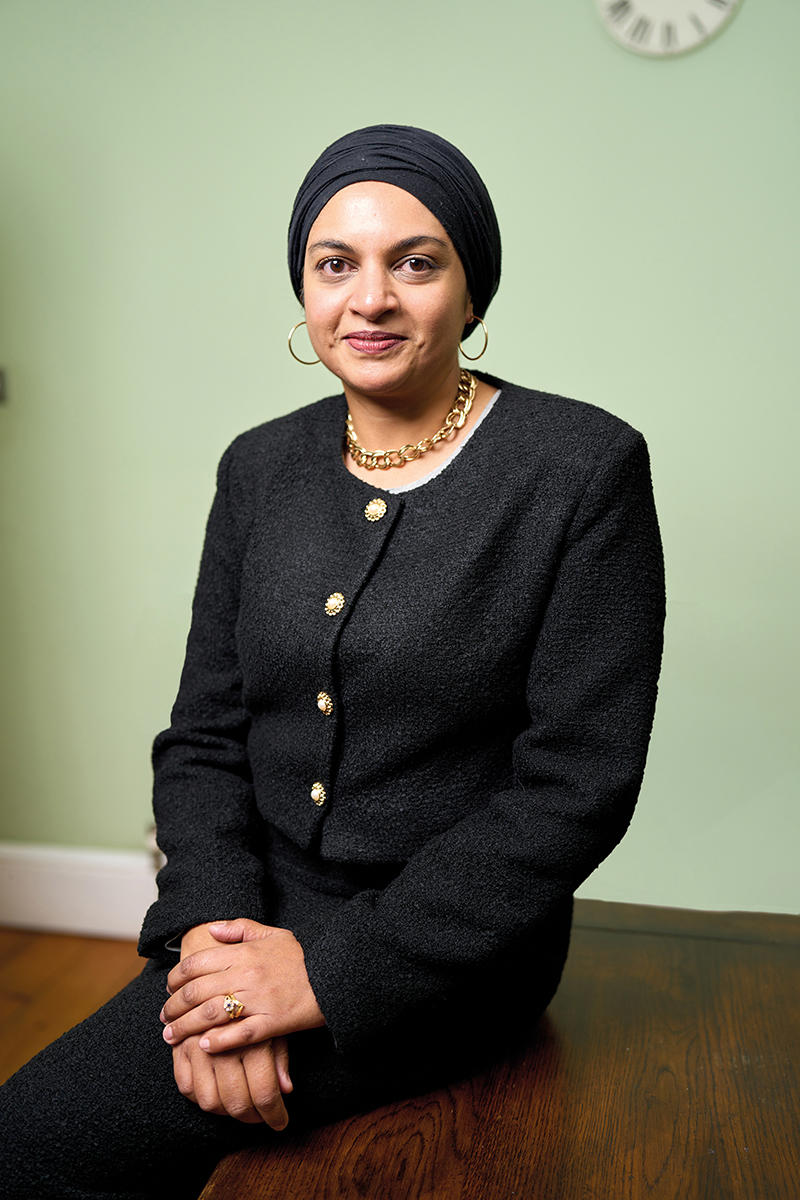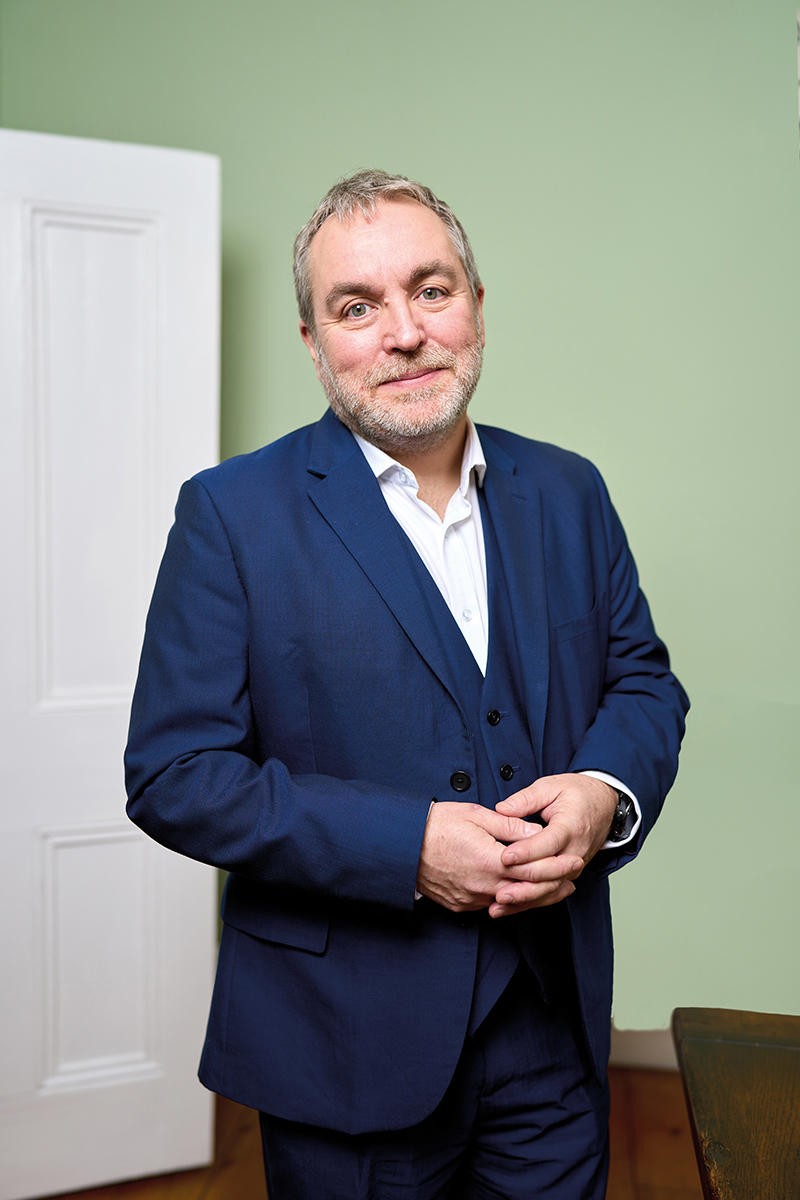A terminally ill patient is distressed, wants to be discharged. His wife insists home is the best place for him. You’re not sure your patient has the capacity to decide – but you’re certain his condition will deteriorate if he leaves hospital.
What’s the wise thing to do? Wisdom is notoriously hard to define and harder still to acquire. But we tend to recognise it when we see it.
Traditionally, in medicine, wisdom has been considered the preserve of older practitioners who have spent decades wrestling with dilemmas and developed the rare ability to know precisely what to do and when.
But what if wisdom could be deconstructed, learnt, even fast-tracked? Sabena Jameel and Chris Turner represent a growing band of academics and clinicians who dare to believe this is possible.
And they’ve converged on a small word packed with promise: phronesis. It’s an Aristotelian concept loosely translated as ‘practical wisdom’, one that combines practical and ethical reasoning: ‘What is the right thing to do, here and now?’
Reassuringly, Dr Turner and Dr Jameel make no personal claims on wisdom. Despite the big ideas and big words they have bonded over, their talk is humorous, self-deprecating, applied. Most striking of all, it’s optimistic.
Doing the right thing
Dr Turner and Dr Jameel arrived at phronesis from different directions.
Dr Jameel was propelled by a question that vexed her during her medical training and still exercises her now she’s a GP: ‘What makes a good doctor?’
She pursued it through her PhD at Birmingham University, and discusses it still with the medical students she teaches there.
‘As I went through medical education, I felt we were missing something: nobody was talking about the values, goals and motivations of medicine,’ she says.
No one chooses to make bad decisionsDr Turner
Dr Turner’s journey began at Stafford Hospital. He became clinical lead in emergency medicine there just before the Healthcare Commission report into the Mid Staffs scandal unleashed a media storm and a period of intense scrutiny and soul-searching.
His starting point was ‘trying to understand the messiness of people trying to do the right thing, and what makes their decisions right for them. No one chooses to make bad decisions’.
It would lead him into a four-year study about phronesis and ethical decision-making in medicine with academics at the universities of Birmingham, Warwick and Nottingham.
 JAMEEL: ‘Nobody was talking about the values, goals and motivations of medicine’
JAMEEL: ‘Nobody was talking about the values, goals and motivations of medicine’
Dr Jameel’s primary focus is professionalism; Dr Turner’s preoccupation is governance and organisational culture.
They don’t always agree but their destination is broadly the same: making the right decision for that patient at that moment in that context, and keeping the patient’s needs front and centre. At least part of the answer, they believe, is phronesis.
‘We are bombarded with different choices, new technologies, resource constraints, information overload, and we need to navigate our way through all these different issues,’ says Dr Jameel. ‘Wisdom adjudicates where values conflict.’
Beyond the guidelines
This isn’t the place to wade out into the intellectual depths of Aristotelian ethics. Suffice it to say that Dr Turner and Dr Jameel believe that the framework for decision-making – and indeed medical education – is based on too narrow a definition of knowledge.
Dr Turner and Dr Jameel repeatedly underline that scientific knowledge (episteme) and technical expertise (techne) are important – but not the complete answer to the competing priorities of modern medicine.
They’re frustrated by the system’s stubborn focus on guidelines, principles and SOPs (standard operating procedures) that dictate ‘this is how it should be done’. More space should be made for phronesis or ethics in action.
Rigid rules and policies provide a degree of comfort, but the situations people find themselves in are complex and nuancedDr Turner
Dr Jameel explains: ‘Let’s say, I have a patient who’s 72 with a new diagnosis of severe hypertension. I know the guidelines.
But I also know the randomised controlled trials and the evidence base never studied people of 72 with renal malfunction, like my patient.
I also know their spouse had a bleed on the brain because of hypertension and my patient’s petrified they’ll follow the same path.
The guidelines are important but these contextual things absolutely matter too. So it might mean putting them on a different medication from the one the guidelines suggest – and giving them a lot of reassurance.’
Dr Turner, now a consultant in emergency medicine in Coventry, believes there are exceptions to every rule, and medicine needs to be more honest about this. He cites the example of a policy of zero tolerance to abuse.
‘Many of us will have been hit by a confused elderly patient or by a patient who is postictal,’ he says.
‘We don’t apply zero-tolerance: instead, we understand the behaviour contextually and make accommodations.
‘Rigid rules and policies provide a degree of comfort, but the situations people find themselves in are complex and nuanced, and there is no policy that fits everything. We ask doctors to try to tread a wise path. If we simply asked people to just follow the rules, then we could have an app. But we know that app-based medicine does not appear to be wise medicine.’
Prized characteristics
Dr Jameel and Dr Turner have tried separately to break wisdom down into its component parts.
For both, this has involved interviewing medical professionals about what they consider to be the characteristics of wise doctors.
Then, each has devised a framework and a language intended as a practical tool to help clinicians recognise wisdom and reconstruct it in their own practice.
‘A big part of wisdom is being able to articulate how you got there,’ says Dr Turner.
 TURNER: There are exceptions to every rule
TURNER: There are exceptions to every rule
Dr Turner and his academic colleagues, led by Dr Mervyn Conroy, have devised what they call a ‘starter set’ of 15 characteristics – from being courageous to resilient to reflective.
Each is presented as a midpoint between two extremes – akin to Aristotle’s Golden Mean. So, the midpoint between ‘doctor decides’ and ‘patient decides’ is ‘negotiate with patients/carers’, and the ideal between being ‘too involved’ and ‘aloof’ is ‘being emotionally intelligent’.
Phronesis lies in establishing where that sweet spot lies.
‘In a consultation, we’re like graphic equalisers, deciding where to act between the two extremes,’ says Dr Jameel.
‘If somebody is misusing controlled drugs, I can’t be overly compassionate and dish drugs out to them, because I'm feeding their addiction. So, I might push the dial more towards being stern. You do what you think is necessary in that context.’
We know that app-based medicine does not appear to be wise medicineDr Turner
The key to this contextualised, more nuanced decision-making is discussion, debate and drawing in as many different perspectives as possible, from different roles and ranks, believes Dr Turner.
To this end, the research project he was involved with produced a series of films presenting health and social care dilemmas in the fictional town of Stilwell. They’re intended as ‘a moral-debating resource’ for medical schools and staffrooms.
It’s a practice embedded in the department where Dr Turner works. ‘For example, at the moment, ambulances are queuing up outside because hospitals are full,’ he says. ‘So we had a conversation about whether we in the emergency department should be providing care in the back of ambulances.
‘The first senior clinician spoke beautifully about why we should; a second spoke beautifully about why we shouldn’t. The harder the question, the more that time, effort and hunting for other perspectives become key components of trying to make the best decision.’
Time constraints and system pressures are obstacles to debate. Dr Turner regrets the demise of places such as the senior staffroom which, ‘though perceived as elitist’, were safe spaces where juniors learnt from consultants, trading experience and ideas about complex cases.
Case-discussion forums focusing on practitioners' emotions, such as Balint groups, are important, says Dr Jameel. If time and space are not made for these constructive, contextual conversations, doctors are left feeling isolated and vulnerable in their decision-making.
Living with uncertainty
For Dr Jameel and Dr Turner the pursuit of wisdom is ‘the ultimate continuing professional development’. Dr Jameel’s PhD research established a set of character vignettes and a conceptual framework for how wise doctors think, based on the biographies of GPs who scored highly in a wisdom questionnaire.
She hopes they might act as ‘role models’ and learning tools for others. However, her focus is wider. Her teaching prioritises self-awareness as a key component of wisdom, giving credence to values, feelings and opinions.
Though her research found wisdom correlated with age, older doctors were not necessarily wiser; Dr Turner’s research concluded the same. Some of Dr Jameel’s ‘wise doctors’ were trainees who had turned tough life challenges to good.
For me, excellence lies in the humanity of the situation, that connection between human beingsDr Jameel
One of Dr Jameel’s key findings was that wise doctors all had ‘the ability to live with a high degree of uncertainty’. She also found that wise doctors’ ability to chart a course through uncertainty was linked to a strong sense of motivation, the desire to see the patient flourish. The quest for good, the ‘purposeful journey’ at the heart of phronesis means justice and compassion are highly prized. Restored to their rightful place, maybe.
‘We can get so tied up in micromanagement, bureaucracy, audits, that we don’t have time to hold a patient’s hand,’ says Dr Jameel. ‘People are scared to use words like this in medicine, but I think it’s about love for humanity. For me, excellence lies in the humanity of the situation, that connection between human beings.’
She and Dr Turner have found that studying phronesis has changed their practice: they now prescribe less medicine.
‘Less intervention, more connection,’ as they put it. One important expression of this is the ReSPECT form (Recommended Summary Plan for Emergency Care and Treatment).
Wisdom can look very different from different perspectives and value sets, Dr Turner acknowledges. A junior doctor may focus on getting the right diagnosis and treatment, while a senior doctor may also have to consider bed shortages; a manager may introduce questions of cost and rationing.
‘But we must always remember that at the core generally are two human beings: a doctor and a patient. It’s about you and me working together towards what’s right and best for you.’

